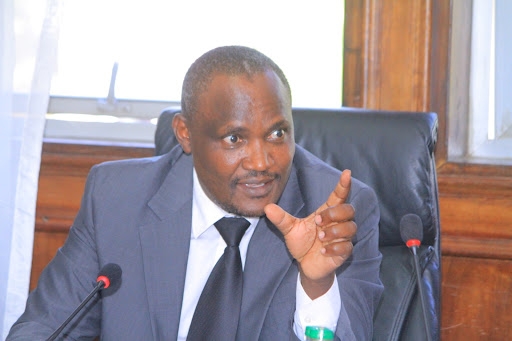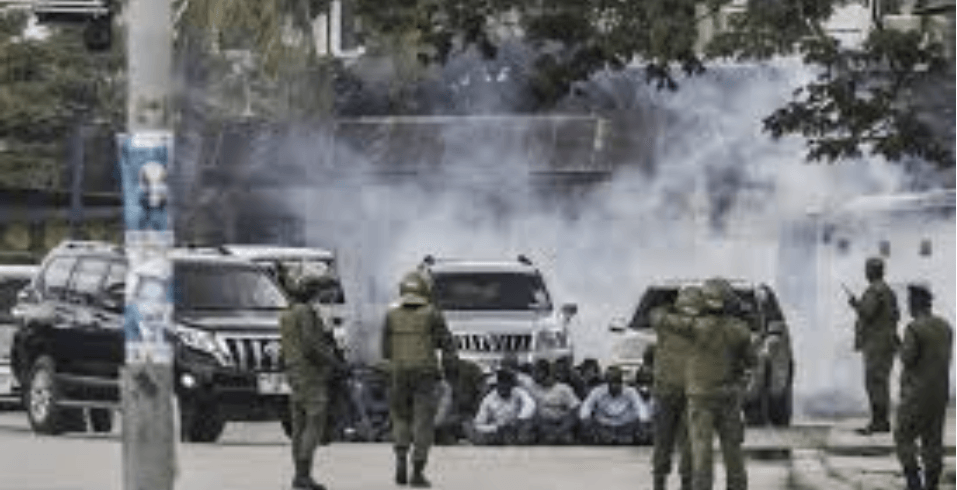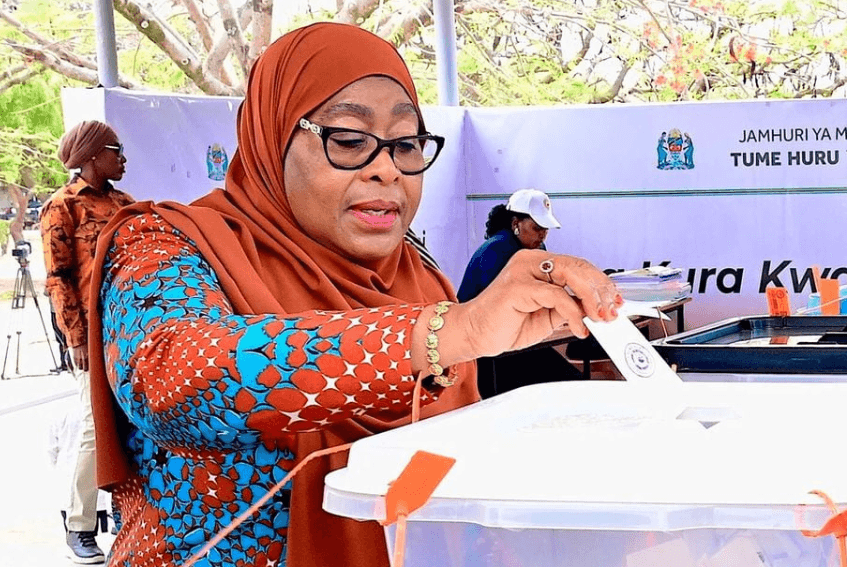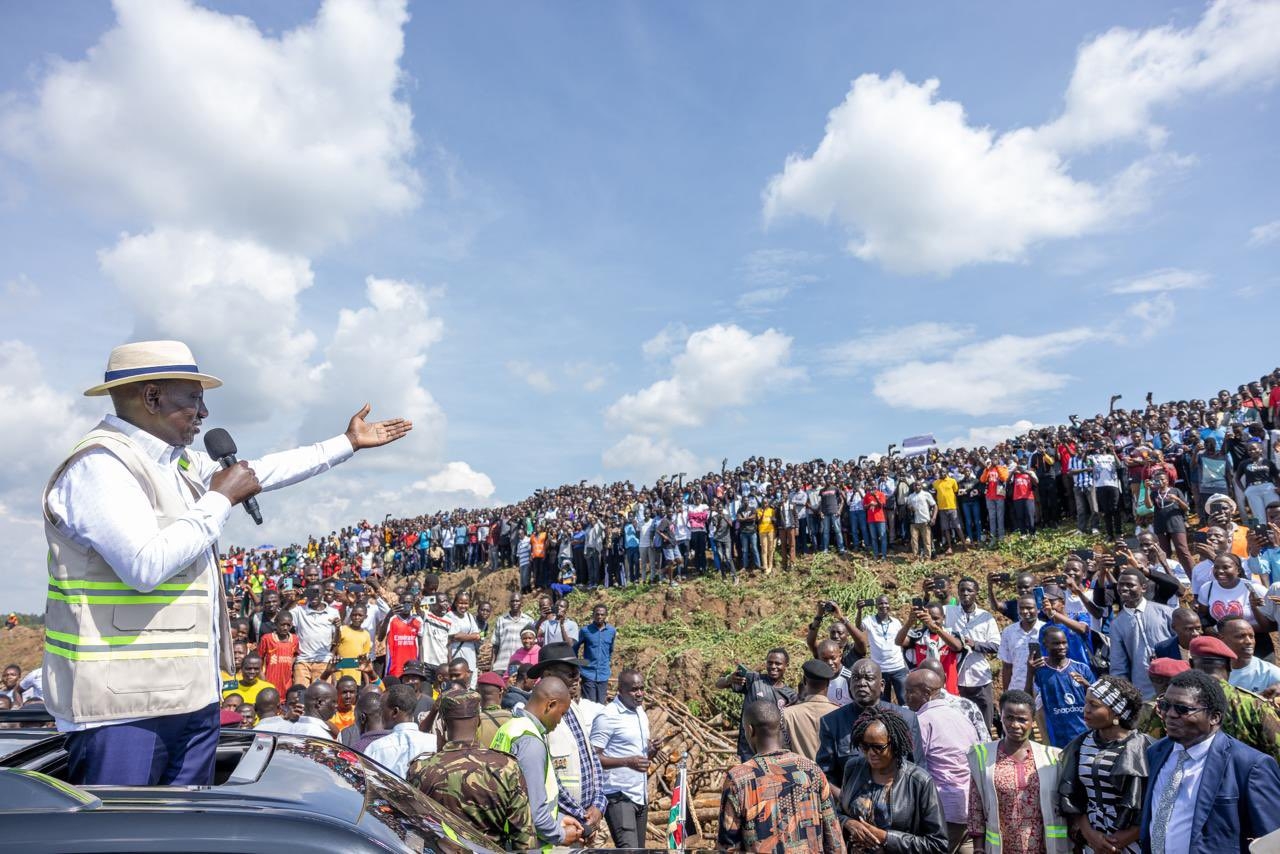For Timothy Kipchumba Toroitich, overcoming the colossus of UDA dominance in Rift Valley to clinch the Marakwet West MP seat as an independent was no mean feat.
But deep inside, he had a conviction the people were behind his bid, having been the voice of the downtrodden and those affected by injustice.
After graduating from law school, Kipchumba offered free legal services to his people, ranging from land inequity to other injustices.
As the inaugural Elgeyo Marakwet county assembly legal chief, he also had a chance to mingle with the people in public participation forums.
How he beat United Democratic Alliance candidate William Kisang – now Senator, has been a wonder of political observers.
The lawmaker says the Marakwet, such as Linah Jebii Kilimo who beat Kanu to sit in Parliament on a Kenda ticket, love people who fight injustices.
“While I was working with the county assembly, I had an opportunity to meet people in public participation forums on laws. I would articulate legal issues to the public. My law firm also propelled me because I would handle legal matters involving my constituents pro-bono,” Kipchumba said.
He cited land cases, children’s matters, female genital mutilation, and resisting banditry. as among the sources of his victory.
“I was very vocal on the issue of cattle rustling. When I sought election as MP, I had already done a lot of pro-bono legal work in the constituency, so selling was easy,” he said.
The MP said he decided to contest the Marakwet West MP seat in 2019, his first victory.
“It was my first time contesting an elective seat but I was pretty sure that being a lawyer and having assisted my people, they were sure about my win,” he told the Star.
While indicating he wants back into UDA, Kipchumba explained his heart was still with the President William Ruto-led party.
“I campaigned through the UDA ticket but unfortunately the process of nomination was marred by voter bribery, ballot stuffing, and thus the process was not free and fair,” he said.
Kipchumba said in a wide-ranging interview that despite the machinations, he lost by only 500 votes in the primaries.
“I appealed to the people and they knew what had happened so I decided through their will to run as an independent. I got 27,000 votes against Kisang’s 17,000,” he said.
For the MP, leadership has followed him since his youth. He was a class prefect from Form 2 to Form 4 at Moi Forces Academy.
“I had other leadership positions and was a leader in the Christian Union. I am staunch Christian and I believe that is what made me the man I am today.”
Kipchumba was born and raised in Marakwet to a military father and teacher mother, an upbringing he believes shaped his leadership skills.
He went to a local primary school – Kamasat, in what was then Marakwet West district – currently Marakwet West constituency.
“From a young age, my leadership traits were noticeable. I was class prefect from Class 4 to Class 8 (2001). I was among the top three pupils who performed very well that year.”
He spoke to the Star about his experience as a first-term MP and the quest to return to the Ruto fold as well as future political plans.
Apart from legal services, what else has worked for you?
The injustice meted out on me through flawed nominations. The Marakwets oppose injustices. The wind of change was also pregnant in the constituency and the people wanted a young, focused, vibrant and energetic leader who would be able to transform the constituency.
What is your view of claims that MPs are out of touch with the realities that affect people?
MPs are elected through a certain political vehicle. When they are in the House they represent mostly the interests of the people but also advance the interests of the party that sponsored them to Parliament. The government has an agenda for its people and the agenda must be prosecuted through its elected representatives. Some of the decisions taken by the government may be not popular with the people or vice versa.
It is a challenge as it presents a conflict in your role as a representative of the people and advancing the interests of the political party. This Parliament has tried. I think so far so good and the country is in the right direction.
What have you yourself done?
In terms of representation, cancer is one of the issues I sought to address. I was among the first-term MPs to bring a motion in Parliament on setting up of cancer prevention and control fund, which was passed. I am finalising on a bill to anchor the fund in law.
I have fought for rights of village elders. As an Education Committee member, I am the one who advanced lifting the order on delocalisation of teachers. I also advocated for issues of death gratuity and pensions. My Advocates Amendment Bill to allow Kenyan lawyers who studied in Rwanda and Burundi and were admitted there to practice here is before JLAC.
Cattle theft is a menace in your region. What is the problem?
The problem is when the white man came to this country and developed a railway system, most of Kenya’s development is along the railway line. Areas that did have a line meant would not develop. Go to a place like Turkana and Tiaty to see the disparity. The banditry issue is a problem of isolation, neglect, and marginalisation. Turkana is the size of Burundi, Rwanda, and Djibouti combined but with no development. We need deliberate civilisation of the people living there. Take roads there. We need to deliberately set a huge budget for taking roads to Tiaty, Elgeyo Marakwet, Turkana, and Samburu, build healthcare facilities, and schools. There are no schools. Those in Turkana and Tiaty are shocking. People don’t know Kiswahili in some of those areas. They are in their own world. Let us take churches there.
The problem is not the people but there has been deliberate neglect and they need to be brought to the same level as others. They also need compensation. We are sitting down as the northern frontier counties to seek compensation. We need to disarm them. The latest weapons are in the North Rift.
What are your priorities?
Bursary. For the first time, we have distributed bursary in the constituency fairly. We have 58 students sponsored on full scholarship for four years. All secondary schools get Sh10,000 while those in tertiary get Sh12,000 and Sh5,000 for those in day schools.
Education. We are working on the infrastructure of our schools. We want to tile all classrooms and improve the face of the institutions. We are also starting mentorship programmes for teachers and students.
Any plans to defect to UDA?
I am an independent MP by accident. I am highly affiliated …my mind, conscience, heart is in UDA …that is why I supported our current Senator …I will be defending the seat on a UDA ticket.
Linah Kilimo is a popular name, how much was she an inspiration?
She is public defender number one. We know her as a woman of all seasons, defender of human rights …she actually fought against FGM, her fighting is what she is known for. During her leadership, the Pokot-Marakwet conflicts ceased because she is a peacemaker and a lot of women and men in EMC draw inspiration from her. She will soon be installed in the Marakwet hall of fame. I want to be remembered as someone who worked so hard and defended the Marakwet community as Linah did.
It is your first time to be in Parliament, did it meet your expectations?
It is interesting. Some of the things you expected are not the way you thought. You realise that some things take time to deliver and in campaigns you make promises but you realise they needs passing some enabling legislations or government compromise on certain issues. A challenge also follows that government plans may not be your plans. We are picking up and learning the ropes.
My advice to the people is that most successful constituencies are those which have voted an MP for more than a term. Even the order of speaking in the House favours ranking members …it is good to be consistent in electing leadership for more than two terms for institutional memory, to enable them to plan well for 10 years.
What was it like growing up with a military father?
I am the first-born in a family of seven. One of the things I attribute my success to is my upbringing. I peg my success on three things – family, a dedicated mother and a strict father.
To what do you owe your shining star?
Church and education. Were it not for education, I wouldn’t have been here. We had no mentors. In Marakwet you can name the lawyers, they are not more than 10. Having come from that background was not easy but education can propel someone from a background that is not so reliable to become a better person.
Are you married?
For the avoidance of doubt, I am married to one wife, and we are blessed with children …and they are doing well in their learning institutions...
Is Tim’s life all about legislation, representation or lawyering?
One of the pillars in life, I remember when Jowie was sentenced to life, the people who surrounded him were the family. One of the challenges I face now is the feeling that I don’t give my family attention. Whenever I am free, I spend time with my family; I take my children out for holidays to enjoy themselves. I also occasionally play football but I enjoy travelling and sightseeing mostly. Whenever I travel I admire political figures. All my children are named after politicians. I enjoy the company of my friends and family on my free days.
Do you still practice?
I have a law firm in Nairobi and it is working well as a fallback plan …and I also have a passion for legal practice. I miss going to court because my time is limited. I really enjoyed going to court, representing the people, seeing positive outcomes, solving legal issues. I really miss that part of my life. We represent issues of the people here, but in a different forum.
What should young people do to achieve such success?
Focus. From my young age, I was a much-focused man. I knew what I wanted and I was determined in all that I did, despite being born in a village. Young people should have a goal that they want to achieve in their lives. I have been inspired by many people including Martin Luther King Jnr. Alcohol is the other issue. Since I was born I have never tasted alcohol. You must be sober in a way so that you make concrete decisions. I believe if even the current President indulged in alcohol, his judgement would be impaired. Most young people nowadays are so misguided. They need to avoid alcohol at all costs because they hinder progress to some level.
What inspires you?
I am inspired by what legacy I would leave. There will be so many MPs who will come after me. I have always been inspired by Julius Caesar’s “Vini, vidi, vici”…I came, I saw and conquered. I want to be remembered as a Julius Caesar.
If we do this interview in the next three years, I will tell you what I have done. Already, I have resuscitated the Chebara institutions valued at Sh430 million, which had stalled for more than 15 years. I unlocked the institutions that two MPs were unable to unlock. I believe they will be completed in time.
Future plans?
The sky is never the limit but we may go to the other seats including the presidency. Who knew Ruto would be President?












